For those aspiring to follow in James Mose’s footsteps, his journey offers valuable lessons and inspiration. Born in Samoa and raised in South Auckland, James has built a successful career in Wellington, balancing professional growth with a strong sense of community and family.
James’ strengths in being futuristic, analytical, and strategic have been crucial in his roles, which involve planning, forecasting, and leading teams. His advice to young people is to focus on building a solid understanding of workforce planning and data analytics, as these skills are essential for decision-making and leadership roles.
Creativity also plays a significant role in James’ life. He encourages others to explore their creative sides, as it can enhance problem-solving and innovative thinking. James’ work in designing digital content for his rugby club is a testament to how creativity can complement professional skills.
James emphasizes the importance of authenticity and hard work. He believes that being true to oneself and consistently putting in the effort can open doors to opportunities. His journey from a customer services officer to a managerial role at Internal Affairs showcases the power of dedication and continuous learning.
For those looking to make a difference, “You be who you see” serves as a reminder to inspire and support others, especially within your community. By prioritizing family and aiming high, young people can achieve their goals while making a positive impact on those around them.
The six pou of Mata Ārahi Manomano drive the questions we have used to profile Māori & Pacific role models, in the Service sector.
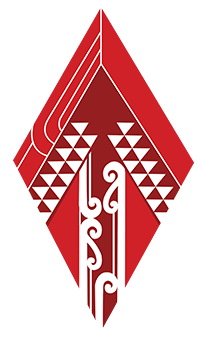
|
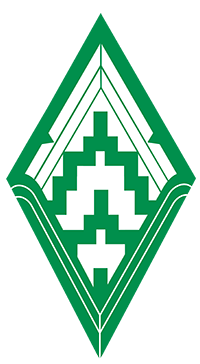
|
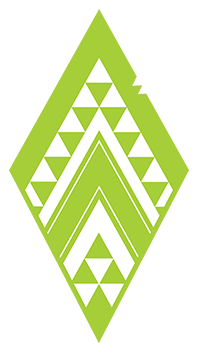
|
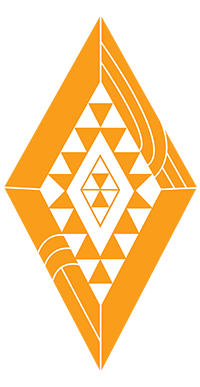
|
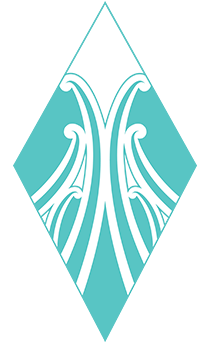
|
|

Representing the levels and forms of aroha that can be found throughout our lives across our many communities. We acknowledge the wide range of obstacles and the journey it takes to overcoming everything that stands in our way to expressing aroha within.
I was born in Samoa, raised in South Auckland. I moved to Wellington in 2007 and predominantly have spent the last 18 years in Wellington, but I still call South Auckland home. I still visit 10 times a year if I can.
My Strengths Finder tests tell me I’m futuristic, I’m a relator, individualisation, analytical, and strategic. A lot of that comes down to me liking to think about things well in advance or plan for multiple possible scenarios. Like many Pasifika, I lean on my ability to build and nurture relationships.
I think that aligns closely with what I’m good at. My roles have required me to plan and forecast into the future using data insights. A lot of them involve either leading people or looking after people in different teams.
I’ve got a creative side as well, so I lean into that to boost my thinking. Every now and then I’ll take time to build designs on Photoshop. I create a lot of digital content for my rugby club.
I have just started a new role as Manager, Operations Delivery at the Internal Affairs, in Identity Services, which involves handling identity products like citizenship, passports, birth certificates, and marriage certificates. My role involves leading the team that manages the workforce.

Seeking guidance from our kaitiaki Hiwa-i-te-rangi, we take a journey through our different aspirations, goals and dreams. This tohu acknowledges hard work, wisdom, the reach of ones goals and the desire that comes from this mahi.
So it’s changed over the years, right? Like it does for most people.
Where I’ve ended up now, a lot has been driven by the idea of this series … that “You be who you see”. I was thinking about where I could end up and where I could push myself towards, but also trying to inspire the next generation of South Auckland kids who are trying to find their way through whatever goals they have.
A lot of it was just prioritising:.
I’d always dreamed of being a CEO in the public sector. Someone once told me that if you aim high enough for the stars, if you fall, at least you’ll fall on the moon. I realised that only 0.9% of public sector CEOs are Pasifika.
In the role that I’m in now, I’m at Tier 4. The next step up is General Manager, which is Tier 3, and then there are two steps away from being CEO. Whether I get there, I’m not sure. But I never thought I’d be four steps away from CEO when I started working at the Department of Internal Affairs.
One thing I did notice was that if I worked hard enough, it would give me opportunities.

With adventure comes challenges as well as obstacles to overcome. We stand proud as we overcome these obstacles. This tohu draws inspiration from the Niho Taniwha and Aramoana patterns. We acknowledge reaching our destination and preparing ourselves for the many new adventures ahead.
I left to attend university in Wellington in 2007, but after two years, I decided it wasn’t for me. During that time, I was still trying to figure out what I wanted to do.
My wife and I were also looking after her parents. Her mum passed away in 2008, leaving her dad, who had chronic emphysema and needed oxygen 24/7. We found jobs that provided flexibility so we could care for him.
He eventually passed away in late 2012. That was a turning point for us, allowing us to refocus our lives. We then got married 26 January 2013, and I moved into the Department of Internal Affairs in July 2013.
A little later, I spent nine months in Ireland playing semi-pro rugby, which was such a cool experience, and working on construction sites. If I think about another defining moment, that trip was probably one of them. I had never been away from home that far for that long.
When I joined DIA, I started as a customer services officer and learned everything from the ground up. I moved into roles around data analytics and workforce planning, which gave me the background insights into how things work. Then, I applied for leadership roles, which got me into that space.

These patterns represent bravery and being strong in the face of adversity. We strive to be persistent and positively challenge anything that threatens to alter, restrict, and put a barrier in the way of our desired pathway.
As you grow up as a Samoan, If you’re looking for motivation, you don’t have to go too far from home to find it. Mum and Dad have always been hardworking. They came over in the early ’90s with nothing and slowly built themselves up, working multiple jobs.
That’s always been in the back of my mind—how I can support my parents. At the most basic level, it’s about making their lives financially easier. Fortunately for me, I have a role that allows me to do that.
There are a few defining moments that stand out. Getting married in 2013 was a big wake-up call. The nine months spent in Ireland was another defining moment because it made me truly appreciate what I had at home.
One piece of advice from a manager always stuck with me: “It may not be the role you want to be in, but it may be the role that helps you get into the role you want to be in.” That made me not limit my options.
When I first started, I thought about what I needed to know to get into a manager role. I knew I needed an understanding of workforce planning, and I needed to understand analytics and build insights around data. And eventually, I ended up where I am now.

Here we are drawing inspiration from the Pūhoro pattern. The pūhoro is used here to represent the strength, speed and agility needed to move forward and accomplish ones goals.
The biggest thing I would say is intentions. If this is the specific career you want, such as managing people or being a workforce manager, build an understanding of the workforce and what that entails. Then, upskill yourself and learn how data can drive your decision-making.
For me, a lot of it is about authenticity. When people have looked at me, they’ve learned exactly what they’re going to get in their teams. They know I’m always going to try to be the hardest worker in the room. Whether they understand the concept or not, they can see it through my actions—how I’m treating someone to make sure that, even if someone gets something wrong, I’m still trying my best to ensure that person’s dignity is maintained throughout the process.
Additionally, I think the other thing they’ve seen in me is someone who is always future-thinking. These are probably the main things that have helped me get to this stage without ever having a formal qualification of any sort.
It’s about doing it no matter what happens and doing it with heart and passion. That way, no one can question why you turn up, why you do what you do, or why you are the person you are.
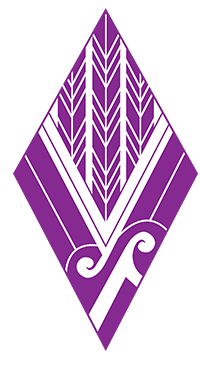
Success, best mentioned in the whakatauki “Tūwhitia te hopo, mairangatia te angitū!” Feel the fear and do it anyway!
About mid-2024, we were looking at moving back to Auckland and a role became available. I applied, but I stumbled through the interview.
It was a bit of a letdown as I usually interview and prepare well but it was a good learning curve. It reminded me of my processes and systems I use to prepare and what I could do better to prepare for the next one. Disappointing, but a blessing in disguise.
A few months later, the role I am in currently came up and I was fortunate to land this one. I would say for now this is a memorable win for me because I am now in a permanent position and can start to plan on how I get to the next level.
The qualification thing is definitely going to limit me from progressing, and that’s why now that I’m at this stage of my career, I’ve had to revisit it and realise I probably need this piece of paper to show that I know how to think and write like this.
We can put that stuff down in a CV, but if there’s no piece of paper to back it up, people generally overlook it. Fingers crossed that this gets completed for me in the next couple of years.